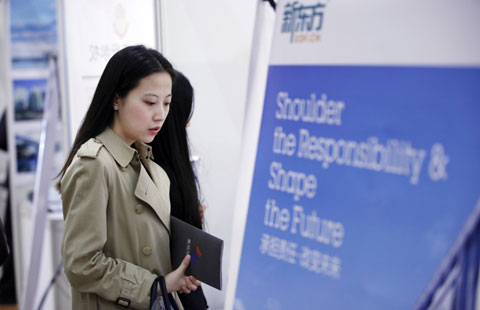Fuzhou jasmine tea industry to be candidate for global heritage status
By Ou Hailin (chinadaily.com.cn) Updated: 2012-12-19 21:28The planting of Fuzhou jasmine tea and the culture associated with its growing has been nominated as a candidate to become a Globally Important Agricultural Heritage System, as defined by the Food and Agriculture Organization of the United Nations.
Yan Keshi, deputy mayor of Fuzhou, the capital and one of the largest cities in Fujian Province, told a news conference in Beijing on Tuesday that representatives of its jasmine tea industry will now prepare to apply for the recognition.
GIAHS status is based on various conditions including the importance of the provision of local food security, the levels of agro-biodiversity and associated biological diversity, the store of indigenous knowledge, and the ingenuity of management systems.
Yan revealed some facts and figures, which show just how important the jasmine tea industry is to the city.
Fuzhou has 1,200 hectares of tea gardens and last year it produced 110,000 tons of jasmine tea, worth 1.78 billion yuan ($290 million).
Two of the 100 jasmine tea companies in the city have been awarded the title "Famous Trade Mark in China".
There are about 100,000 people working in Fuzhou's tea industry and six of the country's top 100 tea companies are based there, officials revealed.
In an evaluation of China's geographical tea brands carried out last year, Fuzhou jasmine tea was valued at 1.83 billion yuan, ranking it in the top 10 tea brands in China.
Some 1,500 tons of jasmine tea left Fuzhou port last year destined for more than 30 countries, and this year the exporting unit price of jasmine tea from China averaged $6.22 per kilogram, against an average tea price of $3.24 per kilogram.
Fuzhou tea growers are planning to extend the growing area of jasmine tea to 2,000 hectares by 2015, increasing the annual output by 36 percent as a result to 15,000 tons, making Fuzhou jasmine tea an annual business worth 3 billion yuan.
Officials said they plan to focus on three key issues in their efforts to expand the local industry, especially internationally: to strengthen the ecological growing processes; enhance the supervision of growing to ensure better quality; and to establish Fuzhou as a world tea trade market with the help of an e-commerce trading platform for the local industry.
- China, US vow to boost trust
- Ex-military leader Guo given life in bribery case
- Ministries discuss retirement age, food security
- 'Flying objects' restricted for G20 Summit
- Jobs growing, but applicants are lagging
- Top Chinese economic fugitive to return
- Taiwan investigators detect 'gasoline reaction'
- Government moves to tackle e-waste pollution
- Xi calls for heightened supervision of reform
- Authorities working on plan to delay retirements









